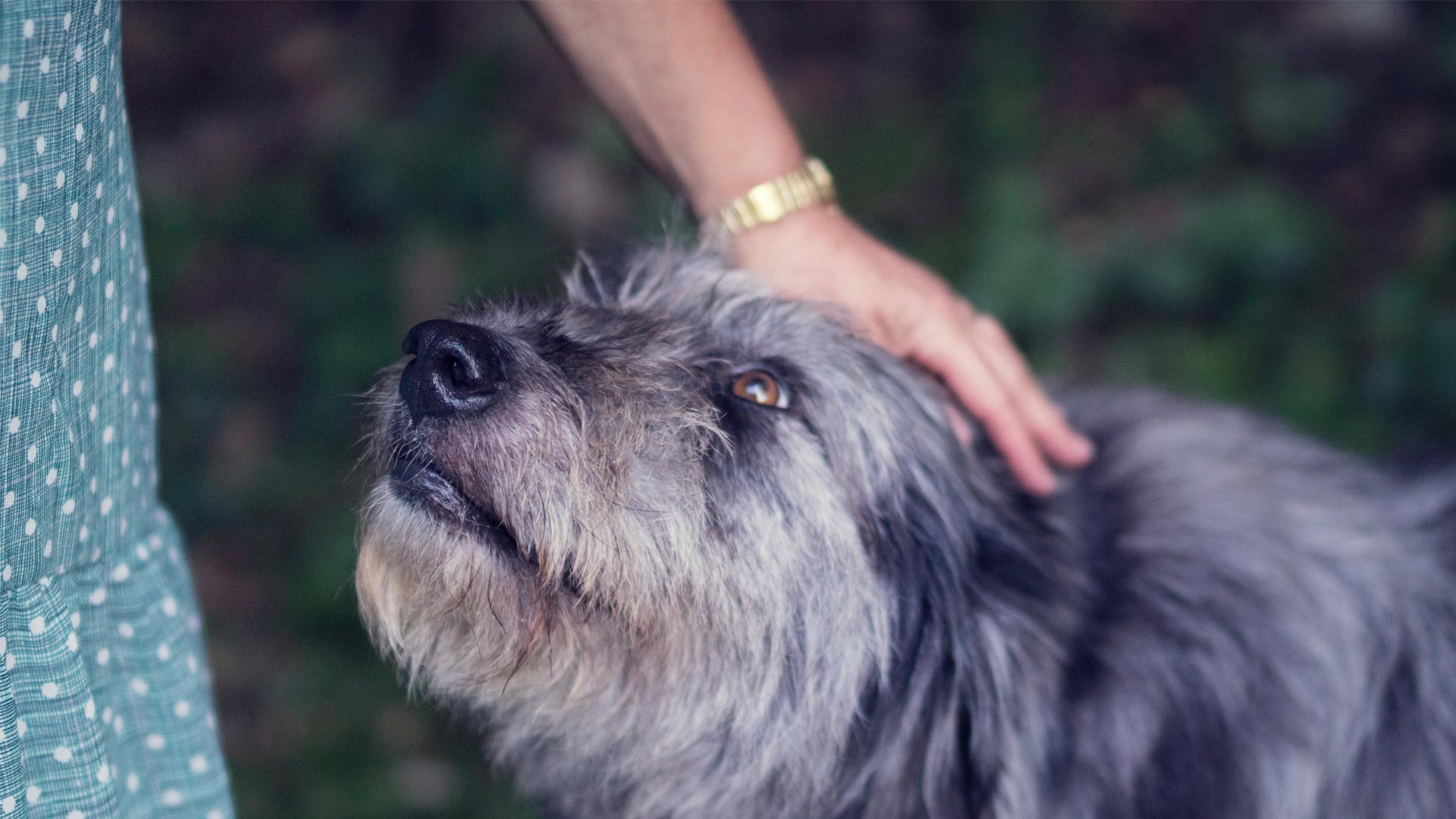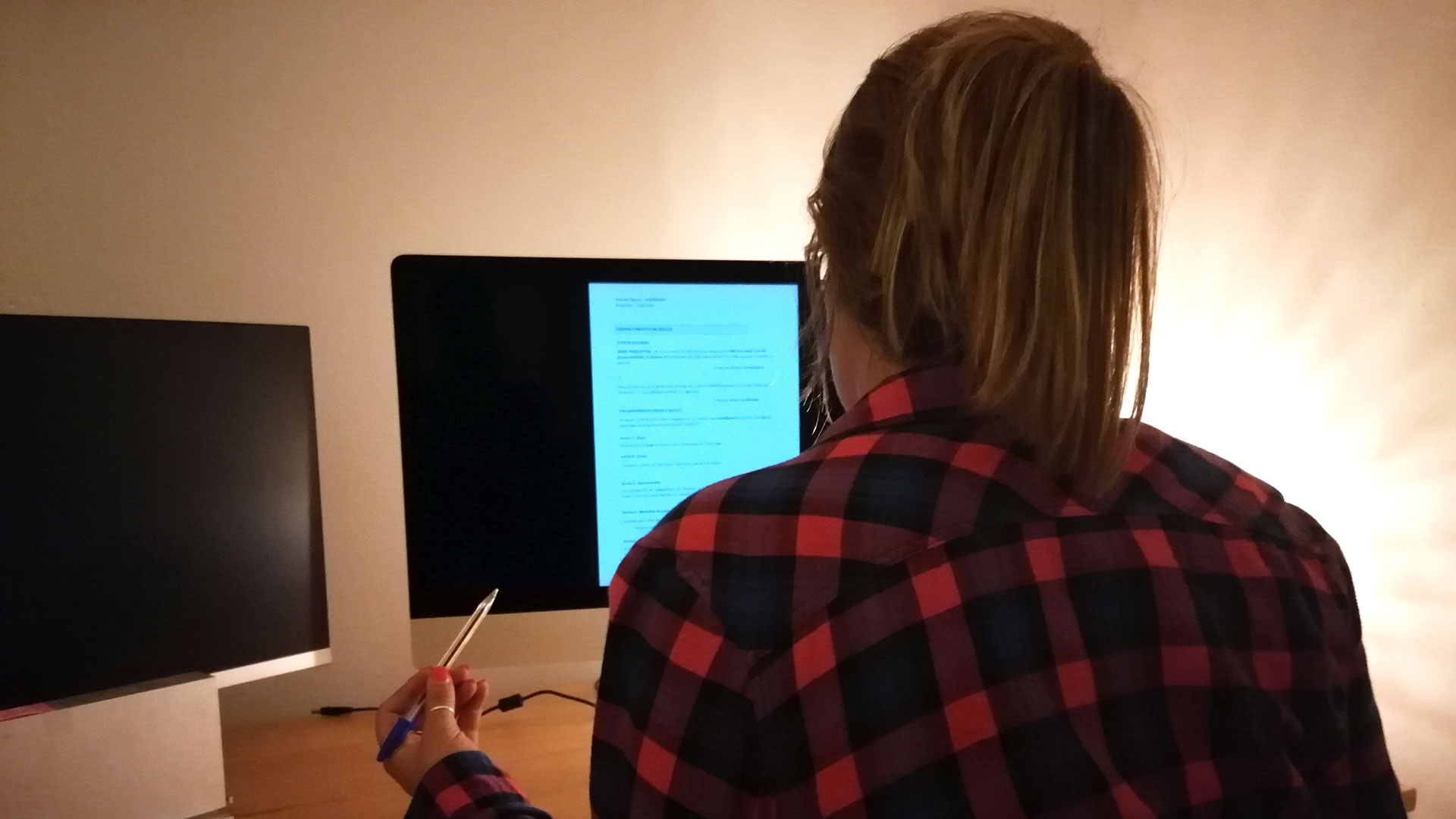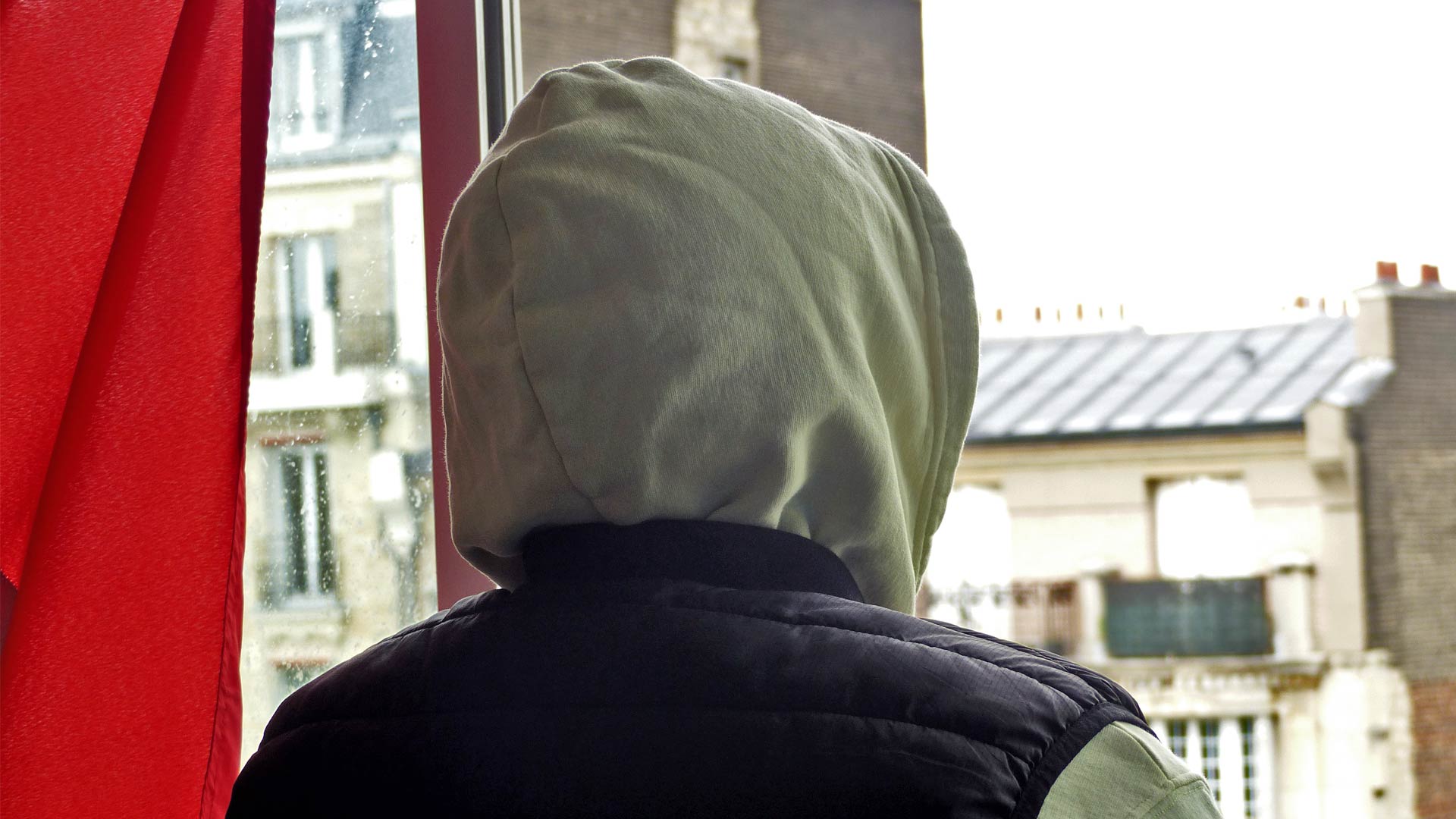The young man comes from a very modest family in the North-West of Tunisia: his mother is a cleaning lady and his father died of an illness when he was only 7 years old. His only sister is married, so Mahmoud lives alone with his mother.
When he was in high school, Mahmoud suffered from severe asthma. Not properly treated, the illness affected his schooling, forcing him to quit his studies during his second year of high school. He then trained to become a solar panel installer but struggled to find a job.
In the meantime, he occasionally accompanied some of his friends who were running contraband operations in Algeria. They would go to border towns like Sakiet Sidi Youssef, and Mahmoud helped them load the truck at 20 dinars for each trip, three or four times a day. "I was doing this because I had no choice, I would have liked to work in anything but this", says Mahmoud.
In 2012, Mahmoud managed to obtain a general food license, which allowed him to work a little and achieve his goal of buying his own car. With his leased* car he was now able to work in all kinds of transportation. He then quickly gave up his licence. "I chose the general food business because there are almost no costs to close it down", he says.
Four years later, Mahmoud started smuggling permanently. Thanks to his regular trips, he had built a solid network and come across the
'right people'. There are many options: transporting cigarettes, shisha tobacco, tyres, etc., but his connections are more in the field of petrol.
"There is also smuggling of Algerian whisky, but I don't want to transport haram things!" Mahmoud says proudly.
An overview of his monthly income and expenses:
In order to collect the petrol cans in Algeria, Mahmoud drives over mountain paths to an agreed upon meeting place. Once there, donkeys who know the route by heart are the ones delivering the goods. Mahmoud only has to load his van. The payment is then sent back with the animals, or through intermediaries.
From 2017 onwards, things got more complicated with customs and borders. Due to occasional attacks, the situation was not secure and the borders were often closed. The smuggling network was forced to adapt. Instead, intermediaries started coming to Tunisian border towns to handle the task of bringing everything needed to Algeria. According to Mahmoud, this saves the transporters from taking risks. The police in these cities are usually aware of these deals and turn a blind eye in exchange for bribes.
"At the border with Algeria, there are villages entirely for contraband, the women sell all sorts of goods in their homes. That's all there is to work with there anyways, many people can't buy 'Tunisian' [goods], it's too expensive. Without Algeria they would have died of hunger", he comments.
Mahmoud usually buys 150 20-litre cans at 15 dinars each. The middleman then gets one dinar for each container. In general, Mahmoud makes two or three trips a day, four times a week, but there are times when the demand is so high that he makes up to six trips a day: three during the day and three at night with a second driver. This is the case, for example, during the harvest season, when all of the agricultural machinery is in full swing.
He earns an average of 7,200 dinars a month, selling each canister for about 19 dinars. Mahmoud estimates that he could earn even more if he increased the frequency of his trips, but this would also increase his expenses... and the number of bribes he has to pay to the police, the smugglers and the National Guard.
"To do this, you can't be afraid to take risks", he says.
So as not to be afraid of the risks involved, Mahmoud says that the drivers do not hesitate to have a drink before setting off "to give themselves courage", so much so that he includes the cost of alcohol and cigarettes in his work expenses, as well as petrol and paying people.
Smugglers usually travel in groups of three or four cars along the mountain tracks. At the head of the line, a few kilometres ahead, is the "kachef", whose role is to spot the police or the National Guard and warn the others if they do. Each person gives 50 dinars to the "kachef".
"It's not to avoid getting arrested, but rather because they are taking more and more money! For the trip to be profitable, it is better to avoid them", explains Mahmoud.
In his experience, it is better to be stopped by the National Guard than by customs, especially if they are carrying a lot of goods. Customs officers take a percentage of the recovered goods and are much less easy to bribe. "For smuggling petrol, the National Guard takes between 20 and 30 dinars for each trip, whereas the customs officers, especially if they see the same car passing several times, can demand up to 100 or 150 dinars!", he says in outrage.
A detailed overview of his monthly income and expenses:
Mahmoud finds it difficult to calculate his daily expenses. He gives money to his mother and does the household shopping. He also has to spend 120 dinars a month on medication and ventolin for his asthma.
As far as leisure activities are concerned, he allows himself to go out a lot. After his work trips, Mahmoud goes home and takes a shower before going to a bar or a café to play cards with his friends. "Alcohol and parties are expensive, especially when you go to clubs in Tunis or Sousse", he says.
In addition, he spends 320 dinars on cigarettes, aside from the ones he buys when he goes to the border for work. Buying clothes is also one of his main pleasures, and will not hesitate to spend 400 dinars a month on it.
Mahmoud also gives a lot to people around him: he helps his neighbour pay his water bill, does the shopping for a family in need, takes a friend's father to the doctor, and so on. It is difficult for him to put a figure on exactly how much this costs him a month. "As long as I have money, I spend it", he sums up.
Grey Zone
Neither the Covid-19 health crisis nor the border closures stopped Mahmoud. Thanks to a friend of his, he found a way to still get the petrol. The two of them started stealing from the few large cement trailers going to Algeria. By emptying a tanker, Mahmoud would get up to 40 cans of petrol. Afterwards, to avoid getting into trouble, Mahmoud made arrangements with some of the drivers: he would pay them the Algerian price for the petrol, 15 millimes a litre, and then sell it for 40 millimes. "As the driver is not supposed to return with full tanks, he can keep the money", Mahmoud adds.
Since the health situation has improved, he has been able to resume his activities as usual, except for running into occasional trouble with the police. The young smuggler is used to this, he has already fled from the police on several occasions. "The most important thing in these situations is not to be overtaken", he says cheekily. Another technique is to reinforce the rear bumper and get the police to ram it. Normally, the car will only get a few scratches.
This time, however, Mahmoud was caught by customs and the police. It was impossible to bribe them, "they didn't want money", he says. He was arrested and released in the same afternoon, but his car and the goods were confiscated. To get his car back, Mahmoud had to pay a heavy fine: each petrol can at a Tunisian price, all multiplied by 100, he says.
"I then realised that my engine had been throttled, the car is useless now."
If he had realised it at the time, Mahmoud would not even have tried to get it back. "I'm not sure they have the right to do that, maybe I should have filed a complaint", he reflects.
In the meantime, he can no longer work, so he relies on his mother for money, which pains him greatly. "I would have preferred it to be the other way around..."
Future
Mahmoud has to come up with a plan to buy another car or replace the engine of the current one in Algeria, which would cost him less. He hopes to resume his smuggling activities, build a small house and be able to buy back a piece of land that his father lost while he was still alive.
"This time I won't make the same mistakes, I'll do what other people do and buy goods", he says. According to him, he will have no worries about laundering the money afterwards. The goal is to ultimaltely support his mother and eventually get married.
Once he achieves his goals, Mahmoud would like to find a "proper" job, for example as a civil servant. "These jobs are the best", he concludes with a laugh.






